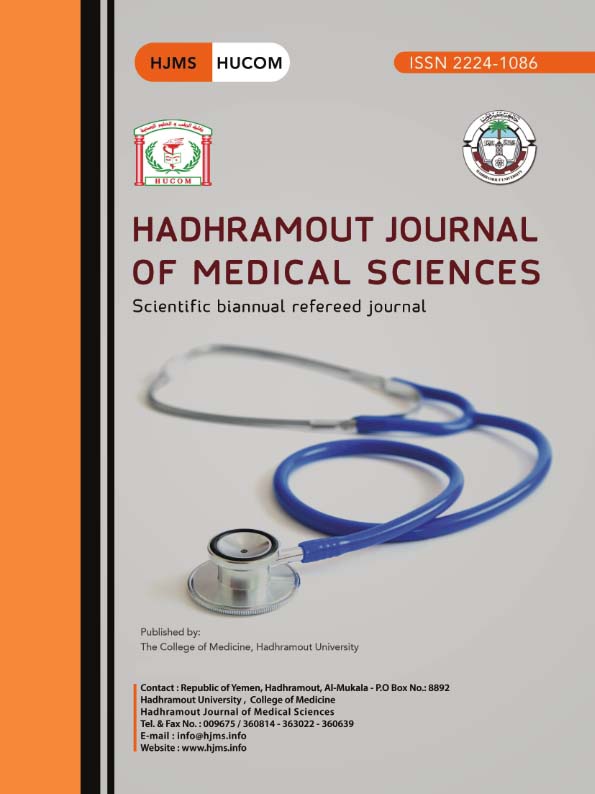Knowledge And Practices Of Malaria Case Management As Per The National Guideline
A Survey Among Physicians In Aden
Keywords:
Knowledge, Practices, Malaria case management, National guideline for anti-malaria drugs, YemenAbstract
Background:
Malaria is a public health problem in Yemen where
78% of people are at some risk to contract it. After
the emergence of chloroquine resistance in Yemen,
the national anti-malaria policy has been changed
in 2009 to artemisinin-based combination therapy.
To ensure that treatment is effectively utilized and
to prevent drug resistance development, it is important to assess knowledge and practices of physicians regarding the recent national guideline for
anti-malaria case management recommended by
the National Malaria Control Program.
Methods:
A cross-sectional survey was conducted in Aden
(March to April 2014). Two hundreds and ten
physicians involved in managing malaria patients
were enrolled from selected public and private
hospitals. A self-administered semi structured
questionnaire was used to obtain information on
socio-demographic characteristics, and knowledge about the national anti-malaria case management guideline Statistical analysis was done using
SPSS-20. Different descriptive tests were used as
appropriate. Bivariate analysis was set at a significance level of P˂0.05.
Result:
Sixty percent of the participants didn’t know about
the national guideline; 23.8% had the guideline
and only 11% received training on it. The first
line drug treatment for uncomplicated malaria was
identified correctly by the following percentages:
3.3% for adult, 3.8% for children, and 27.1% for
first trimester of pregnancy, whereas none of them
mentioned the correct first line anti-malaria drug
for the second and third trimesters of pregnancy. Regarding physicians’ knowledge about the
first line drug treatment for complicated malaria,
333
84.8%, 66.7%, 49.0 % and 6.2% mentioned the
correct drugs to treat adult, children, first trimester
and the second and third trimesters of pregnancy respectively. No significant difference in the
knowledge was detected between specialists and
general practitioners except for first line treatment
for complicated malaria in first pregnancy trimester. The highest percentage (92.7%) rely on parasitological confirmation in malaria diagnosis.
Conclusion:
This study reveals poor knowledge among physicians regarding national anti-malaria guideline,
especially regarding the treatment of uncomplicated malaria of the vulnerable groups. Involvement of all stakeholders during the adoption and
implementation of new national policies, providing training sessions and refresher courses is recommended to ensure correct and effective use of
current policy.

